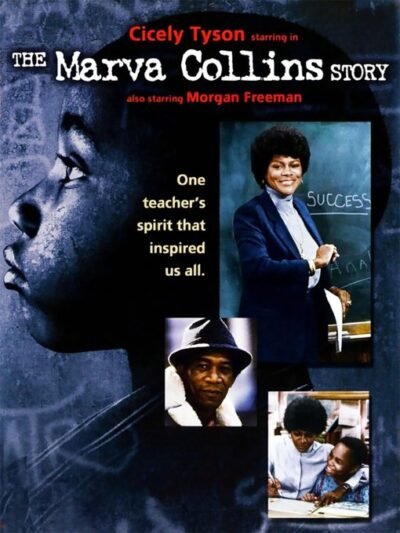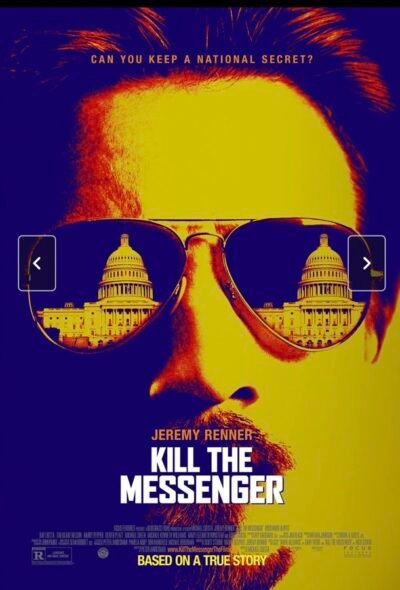In 1975, school teacher Marva Collins took $5,000 from her retirement fund and opened the low-cost Westside Preparatory School on the second floor of
 In 1975, school teacher Marva Collins took $5,000 from her retirement fund and opened the low-cost Westside Preparatory School on the second floor of her home in Chicago. She started with four students, including her own daughter, and began welcoming students that others had labeled “unteachable.” Her success led newspapers such as the Chicago Sun-Times and the Washington Post to write about her.
In 1975, school teacher Marva Collins took $5,000 from her retirement fund and opened the low-cost Westside Preparatory School on the second floor of her home in Chicago. She started with four students, including her own daughter, and began welcoming students that others had labeled “unteachable.” Her success led newspapers such as the Chicago Sun-Times and the Washington Post to write about her.
“In the one room that is Westside Prep, 30 children from 4 to 14 years old sit side by side delving into the sciences, mathematics, literary classics,” the Post wrote. “A 5-year-old is engrossed in the Canterbury Tales. A 9-year-old gives Nietzsche a critical read. A 12-year-old ponders the intricacies of Rabelais. These are not the children of Chicago’s intellectual elite.
Most are fresh off the streets of one of the city’s toughest, predominantly black ghettos, and many of them couldn’t even read before Marva Collins got her hands on them.” Many of her students went on to graduate from Ivy League schools. “Kids don’t fail,” she declared. “Teachers fail, school systems fail. The people who teach children that they are failures — they are the problem.”
In 1981, CBS aired a made-for-TV movie about her life, starring Cicely Tyson and Morgan Freeman. Within a decade, she was training 1,000 teachers a year on her methods of helping students to love to learn and to think critically. She remained an inspirational figure, appearing in Prince’s video, “The Most Beautiful Girl in the World.”
After George H.W. Bush was elected president, he asked her to become Secretary of Education. She declined the offer, preferring to continue to influence the lives of students, one by one. In 2004, she received a National Humanities Award. She died in 2015.
Gratitude to Jerry Mitchell for sharing this.
“From Swastika to Jim Crow” (2000)
This documentary explores the striking parallels between Nazi antisemitism and segregation in the American South. When Jewish scholars were expelled from German universities in 1939, many found refuge in Southern U.S. colleges—often the only institutions open to them due to antisemitism and limited job options Jewish Telegraphic Agency+15Wikipedia+15Andscape+15.
The film juxtaposes powerful archival footage: KKK torch-wielding mobs next to Nazi soldiers in formation, American lynchings juxtaposed with Holocaust imagery. Through this, it illustrates a shared climate of oppression—how both African Americans and Jewish refugees in the South felt isolation and discrimination, forging bonds of empathy and solidarity Wikipedia.
This documentary uniquely underscores how two marginalized communities—Black students and Jewish exiles—encountered overlapping barriers yet found strength in shared understanding.
“Origin” (2023) – Directed by Ava DuVernay, this biographical drama follows Isabel Wilkerson as she explores caste systems across the U.S., Nazi Germany, and India. It underscores that Jim Crow’s segregationist framework influenced Nazi legal structures Wikipedia+8The Times of Israel+8Wikipedia+8Movie Nation+4Wikipedia+4Jewish Telegraphic Agency+4.
American Made (2017)
Starring Tom Cruise, this action-packed biographical film tells the story of Barry Seal, a commercial airline pilot who becomes a drug smuggler for the Medellín cartel in the 1980s. Recruited by the CIA, Seal finds himself running covert operations that blur the line between patriotism and profiteering—flying reconnaissance missions, transporting weapons, and smuggling cocaine into the U.S. His fast-rising wealth and dangerous double life spiral out of control, revealing the chaos of Cold War politics and America’s entanglement with drug trafficking.
Kill the Messenger (2014)
Starring Jeremy Renner, this gripping drama is based on the true story of journalist Gary Webb. While investigating a story in the 1990s, Webb uncovers evidence that the CIA was complicit in smuggling cocaine into the U.S. to fund Contra rebels in Nicaragua. His groundbreaking reports expose the devastating link between government operations and urban America’s crack epidemic. But as Webb pursues the truth, he faces intense backlash, professional ruin, and personal danger, raising haunting questions about power, accountability, and the price of speaking out.
White Boy Rick (2018)
Set in 1980s Detroit, this crime drama tells the true story of Richard Wershe Jr., known as “White Boy Rick.” At just 14, he was recruited by the FBI to work as an undercover informant in the city’s drug trade. But when the government abandoned him, Rick turned to dealing drugs himself—only to be sentenced to life in prison for a non-violent offense at age 17. The film explores the contradictions of loyalty, betrayal, and survival in a city gripped by crime and poverty.